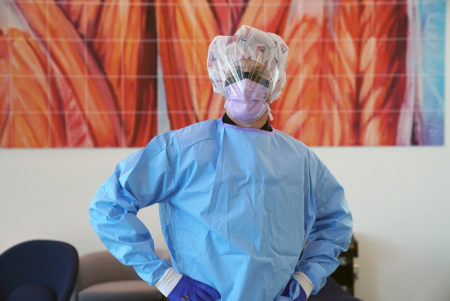 Richard Sloan, DO serves as Associate Professor of Osteopathic Principles & Practice at the Idaho College of Osteopathic Medicine.
Richard Sloan, DO serves as Associate Professor of Osteopathic Principles & Practice at the Idaho College of Osteopathic Medicine.
Dr. Sloan earned his Bachelor of Science (B.S.) degree in biochemistry and B.S. degree in biology from Rutgers University in New Jersey in 1999. After receiving his degrees, he worked as a microbiologist for a pharmaceutical/medical device company in the field of sterilization of medical products and pharmaceuticals. He later earned his Doctor of Osteopathic Medicine (D.O.) degree from the Philadelphia College of Osteopathic Medicine in Philadelphia, Pennsylvania in 2008.
While at PCOM, he served as an undergraduate osteopathic manipulative medicine (OMM) fellow. This additional year of training was focused on further developing his hands-on osteopathic diagnosis and treatment skills as well as teaching and tutoring students in this discipline. In 2012 he completed his training in a combined Family Medicine and Neuromusculoskeletal Medicine (NMM) residency from Florida Hospital – East in Orlando, Florida.
Prior to coming to ICOM, Dr. Sloan most recently was a professor and Chair of Osteopathic Manipulative Medicine Department at William Carey University College of Osteopathic Medicine in Hattiesburg, Mississippi. During this time, Dr. Sloan utilized OMM in private practice, treating a variety of neuromuscular complaints. His professional interests include nutrition, cranial manipulation, and medical acupuncture.
Q: What inspired you to pursue a career in medicine?
A: Teachers in school recommended it since I did well in science and math and, as an impressionable youth, it seemed like that was the career path I should pursue. I joined the local volunteer rescue squad when I was 16 years old and after earning my EMT certification and running calls with them for years, I really enjoyed working with and helping people in ways that others couldn’t. Unfortunately, a college advisor took the wind out of my sails and completely stalled my pursuit of becoming a physician when he told me that I would just be wasting my time and the time of any medical school I applied to. After working for several years in a corporate laboratory as a microbiologist, I felt empty and miserable. I remembered my time as an EMT and then took on a second full-time job as a critical care technician in an ICU at a local hospital which then rekindled the fire to become a physician.
Q: How did you transition into academia, and what inspired you to work for ICOM?
A: At the Philadelphia College of Osteopathic Medicine, the OPP department had undergraduate teaching fellows that did an extra year of medical school and had more intensive training in the discipline. I was fortunate to be selected as one of the three students from my class who were awarded this opportunity. As an OPP fellow, I would go out to different local clinics each morning and have clinic time with patients specifically for osteopathic manipulative medicine. During most afternoons we would help the professors teach first and second year students in lab. This was my first introduction into the teaching aspect of education and I truly enjoyed it. I knew then that I would want teaching to be a part of my future career as a physician.
Prior to moving to Idaho and becoming part of the ICOM family, I spent ten years in the south. As a native of New Jersey, I truly missed having four seasons, snow and wooded areas to hike and camp. When I heard that ICOM was looking for a professor in the OPP department, I thought that this would be a wonderful opportunity not only for myself but for my family.
Q: What is your favorite memory from your time in medical school?
A: Medical school was honestly one of the best times of my life, so it is hard to say that one memory is my favorite. The time spent living out of my car during my clinical rotations as I got to travel all over Pennsylvania, New Jersey and Delaware each month was a lot of fun. As a member of the Phi Sigma Gamma medical society at PCOM, I was able to live in a house owned by the club during my last two years of medical school when I was fulfilling my OPP fellowship obligations at PCOM. The 6-10 of us living at the house spent a lot of time studying, renovating the house, socializing and became very close friends as a result.
Q: Knowing what you now know, what advice would you give yourself as a first-year medical student?
A: Time is precious and it goes by so very quickly. Prioritize and spend your time on things that will build you up and make you a better person. Take a shovel and bury all your self-doubt deep in a hole somewhere and never return. Self-doubt robs you of the one thing we can never get back and makes it so you can’t be your best you and limits how much you can grow.